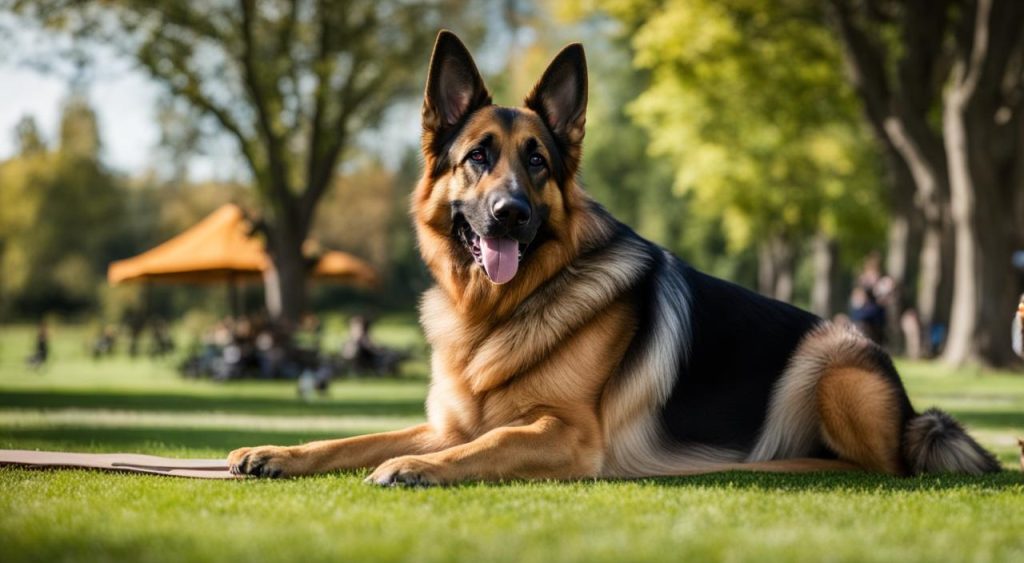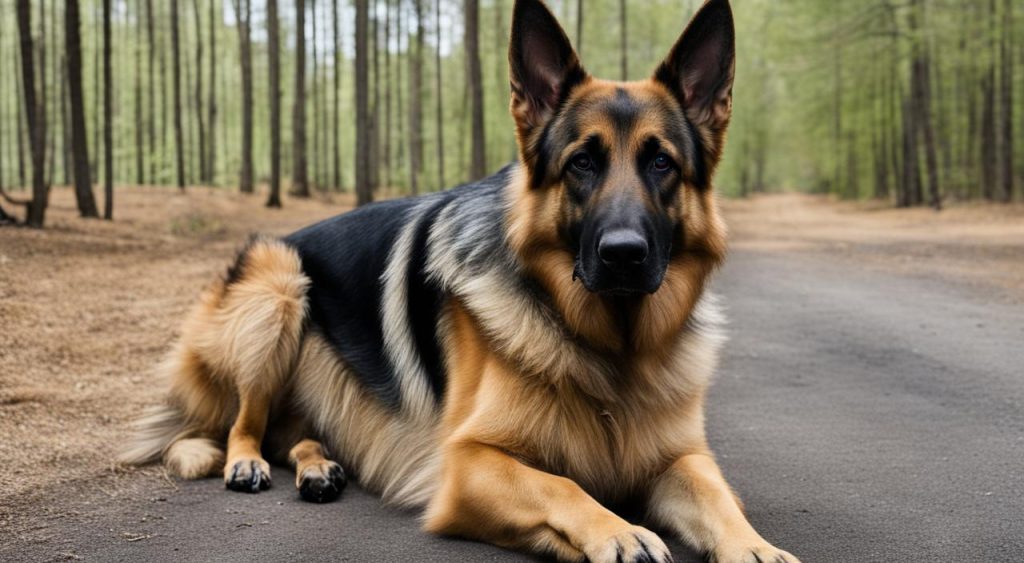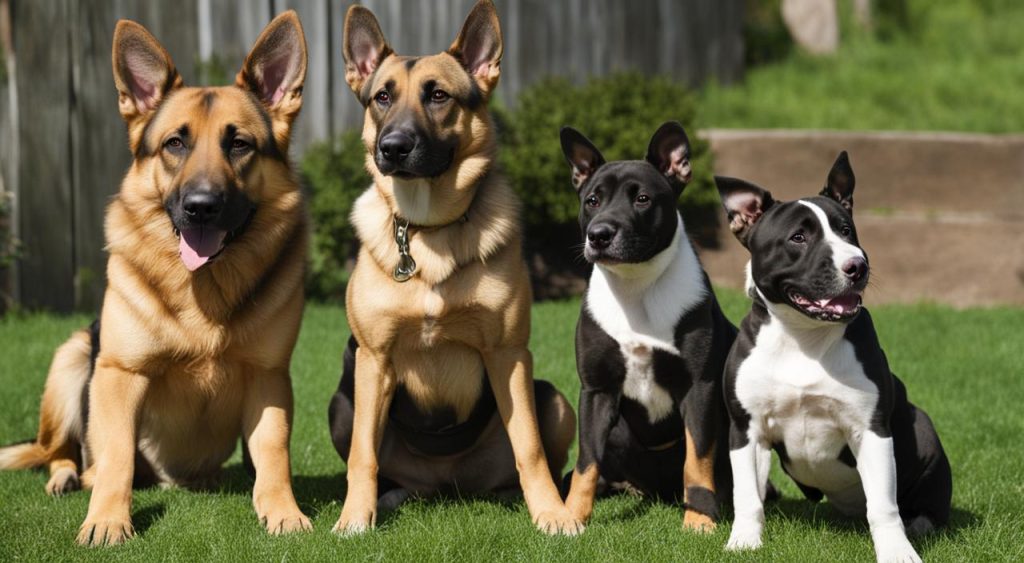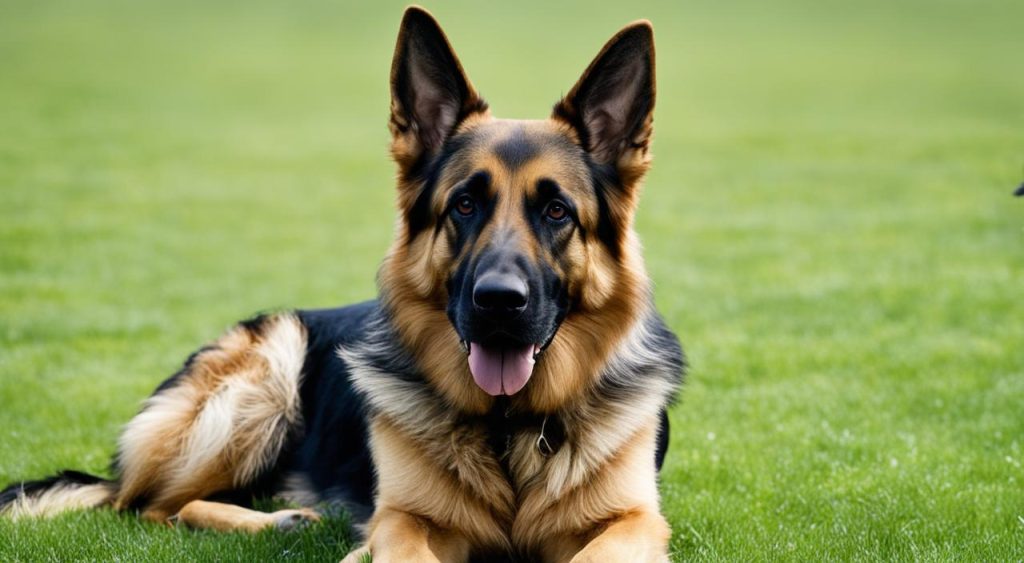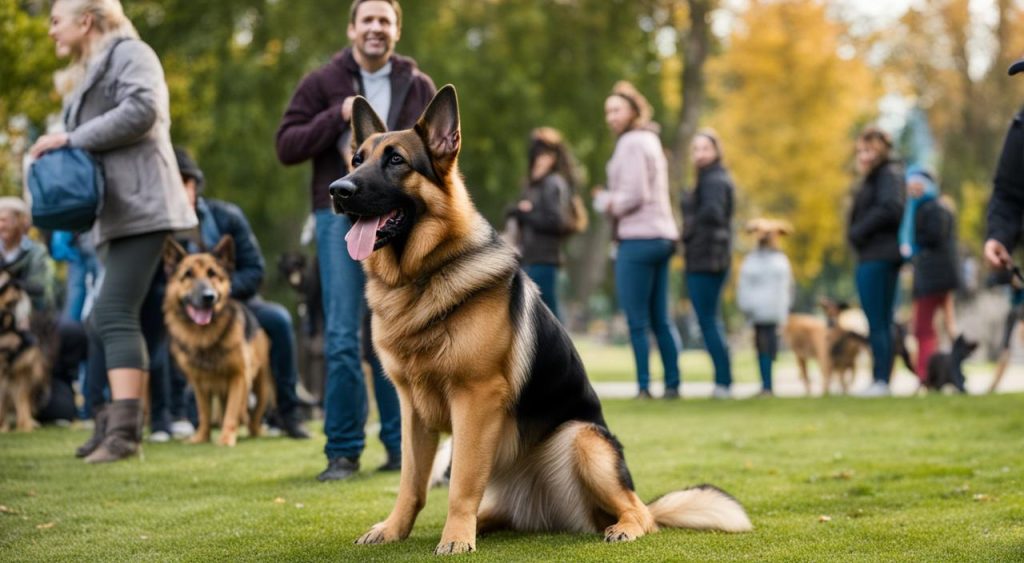Training a German Shepherd to be friendly is crucial for their socialization and overall behavior. Whether you have a puppy or an older dog, it’s important to start training early to address their protective instincts and teach them to be calm and friendly. By following the right techniques and providing proper socialization, you can raise a friendly and sociable German Shepherd.
Key Takeaways:
- Start training your German Shepherd to be friendly early on, whether they are a puppy or an older dog.
- Understand the natural instincts and traits of German Shepherds, including their inclination to be protective and reserved.
- Use positive reinforcement techniques, such as rewards and praise, to motivate and reinforce desired behaviors.
- Focus on socialization by exposing your German Shepherd to different environments, people, and experiences.
- Obedience training and teaching basic commands are essential for a well-behaved and friendly German Shepherd.
Understanding the German Shepherd’s Nature
German Shepherds have a natural inclination to be protective and reserved. This is because they were originally bred as herding dogs with the responsibility of protecting livestock. Understanding their natural instincts and traits is crucial for their training.
German Shepherds are known for their loyalty, intelligence, and energy. They excel in various tasks like law enforcement and military work. However, their aloofness towards strangers is also ingrained in their breed.
The Importance of Socialization
Socializing your German Shepherd from a young age is essential to develop their confidence and teach them how to behave around new people and situations. Exposing them to different environments, people, sounds, and experiences will help them become well-rounded and adaptable.
Positive Reinforcement and Consistency
When training a German Shepherd, it is important to use positive reinforcement techniques. Rewarding desired behaviors with treats, toys, and praise reinforces the behavior and encourages them to continue behaving in a friendly manner. Consistency is also crucial in their training. Set clear boundaries, be consistent in your commands, and follow through with consequences for unwanted behaviors.
“Training a friendly German Shepherd requires patience, understanding, and consistency. By respecting their nature and using positive reinforcement techniques, you can mold them into sociable and obedient companions.”
Setting Clear Boundaries
German Shepherds thrive when they have clear boundaries and understand their place in the family hierarchy. Establishing yourself as the pack leader will help them feel secure and understand what is expected of them.
Training a friendly German Shepherd requires time and effort, but the rewards are immense. By understanding their nature, providing socialization, using positive reinforcement techniques, and setting clear boundaries, you can raise a well-behaved and sociable German Shepherd.
Tips for training a friendly German Shepherd
Training a German Shepherd to be friendly involves several key techniques. To start, establish yourself as the pack leader and set clear rules and boundaries. Consistent positive reinforcement is crucial in this process. “You should reward desired behaviors and ignore or redirect unwanted behaviors,” says dog training expert Sarah Thompson. Using treats, toys, and praise can be effective motivators during training sessions.
Socialization is another important aspect of training a friendly German Shepherd. It involves exposing your dog to different environments, people, sounds, and experiences. Thompson recommends enrolling your German Shepherd in puppy classes and obedience training. These structured environments provide opportunities for socialization and can help your furry friend feel more comfortable and confident.
“Teaching your dog basic commands and obedience training is not only beneficial for their behavior, but it also strengthens the bond between you and your German Shepherd,” Thompson explains. Make sure to use positive reinforcement techniques during training, rewarding your dog for following commands and exhibiting friendly behavior.
To recap, when training your German Shepherd to be friendly, establish yourself as the pack leader, use consistent positive reinforcement, expose your dog to different environments for socialization, and prioritize teaching them basic commands and obedience.
Conclusion
Training your German Shepherd to be friendly requires dedication, consistency, and understanding of their nature. By providing proper socialization from an early age, you can shape their behavior and ensure they become sociable and well-behaved companions.
Remember to establish yourself as the pack leader through clear rules and boundaries. Through positive reinforcement techniques, such as rewards and praise, you can effectively communicate what behaviors are desired. Consistent training sessions and exposure to different environments will help your German Shepherd develop confidence and adaptability.
With the right training approach and a proactive attitude, you can build a strong bond with your German Shepherd. Enjoy the journey of training and watching your loyal and friendly German Shepherd grow into a happy and obedient pet.

